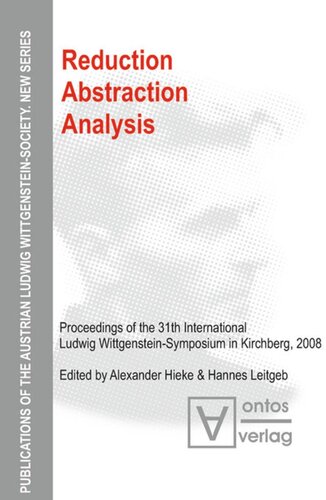

Most ebook files are in PDF format, so you can easily read them using various software such as Foxit Reader or directly on the Google Chrome browser.
Some ebook files are released by publishers in other formats such as .awz, .mobi, .epub, .fb2, etc. You may need to install specific software to read these formats on mobile/PC, such as Calibre.
Please read the tutorial at this link: https://ebookbell.com/faq
We offer FREE conversion to the popular formats you request; however, this may take some time. Therefore, right after payment, please email us, and we will try to provide the service as quickly as possible.
For some exceptional file formats or broken links (if any), please refrain from opening any disputes. Instead, email us first, and we will try to assist within a maximum of 6 hours.
EbookBell Team

4.1
80 reviewsPhilosophers often have tried to either reduce "disagreeable" objects or concepts to (more) acceptable objects or concepts. Reduction is regarded attractive by those who subscribe to an ideal of ontological parsimony. But the topic is not just restricted to traditional metaphysics or ontology. In the philosophy of mathematics, abstraction principles, such as Hume's principle, have been suggested to support a reconstruction of mathematics by logical means only. In the philosophy of language and the philosophy of science, the logical analysis of language has long been regarded to be the dominating paradigm, and liberalized projects of logical reconstruction remain to be driving forces of modern philosophy.
This volume collects contributions comprising all those topics, including articles by Alexander Bird, Jaakko Hintikka, James Ladyman, Rohit Parikh, Gerhard Schurz, Peter Simons, Crispin Wright and Edward N. Zalta.